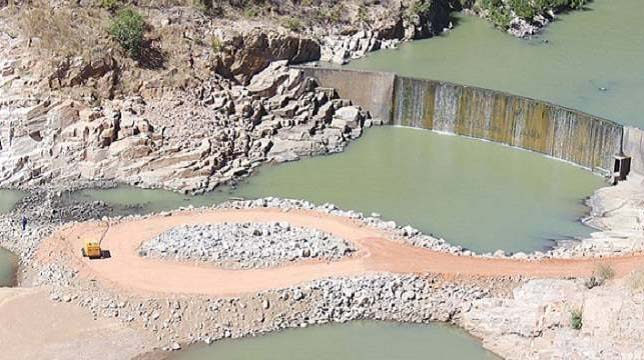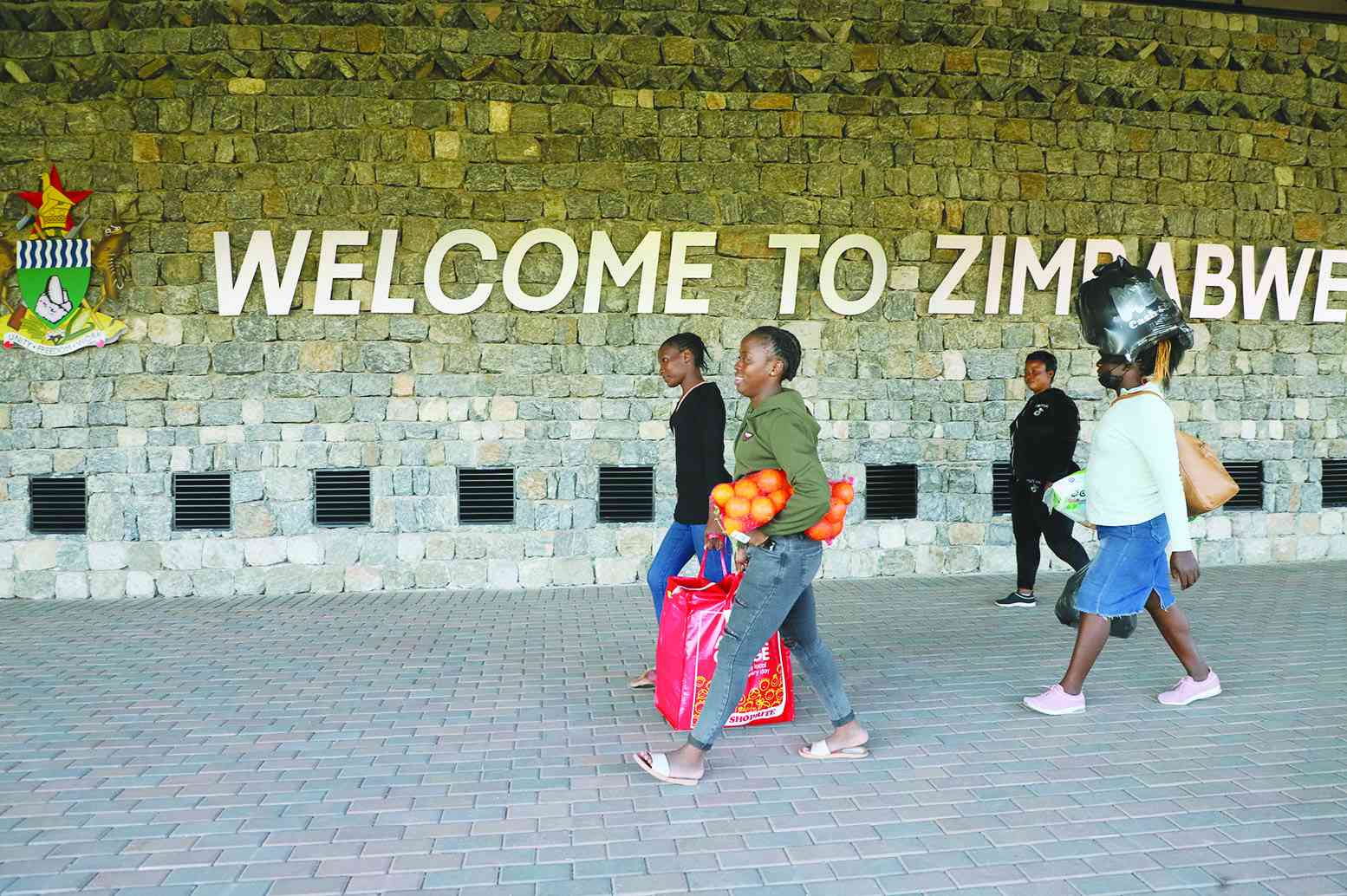
LORRAINE NDEBELE HIT by blows of perennial droughts, low yields and incessant food insecurities, communities in Silobela, Kwekwe district in the Midlands province, can be forgiven for believing that their future is bright when the under-construction Vungu Dam becomes a reality.
Vungu Dam water treatment and irrigation project agreement was signed on December 23 last year between the Zimbabwe National Water Authority (Zinwa) and Grindale Engineering who won the tender.

The dam lies along the Vungu River, which is a major source of water for Kwekwe district.
As construction work takes shape, the communities believe some of their social ills — murder cases, illegal gold mining and child marriages — will be over as soon as the dam is complete in 36 months’ time.
Silobela is an agricultural community located about 60 kilometres west of Kwekwe town, 80km north-west of Gweru town while bordering Nkayi on the west.
But due to below normal rainfall, Silobela has endured years of underdevelopment coupled with social challenges associated with lack of development.
The social ills affecting the communities were highlighted during a meeting held by the police in January this year when Officer Commanding Midlands province Commissioner Winston Muza visited Silobela to meet community leaders, who included those from the church.
The meeting was part of an ongoing community outreach on crime prevention in various districts in the Midlands by the police.
- Chamisa under fire over US$120K donation
- Mavhunga puts DeMbare into Chibuku quarterfinals
- Pension funds bet on Cabora Bassa oilfields
- Councils defy govt fire tender directive
Keep Reading
Silobela and Zhombe were identified for violent crimes using dangerous weapons such as machetes, knives and axes.
At the meeting, Chief Ntabeni of Silobela said “dangerous machete gangs” were on the loose in his area.
“They have the audacity to attack police officers with reckless abandon. They also wreak havoc at functions and gatherings. They rob people and steal cattle while threatening victims with dangerous weapons,” he said.
However, a glimmer of hope is rising as the Vungu Dam Water Project, which includes construction of a dam, water treatment plant and irrigation scheme, takes shape. The dam construction has brought hope for economic growth to Silobela while those employed at the dam site are enjoying the benefits of the project.
Vungu Dam will cover more than a 30 km radius from the site.
In an interview during a media tour recently Edison Dube, a villager from Silobela who works at the dam site described how employment opportunities at the dam site rescued them from the clasp of economic hardships.
“I have had challenges getting a job. The problem of unemployment did not affect just me but many young men in Silobela suffered because they failed to complete their education. Some of us were forced to engage in criminal activities but this has changed. I would like to express my gratitude to Grindale for what they have done for us. Their gesture has even reduced the crime rate in the communities by increasing employment opportunities for the youths,” Dube told the Zimbabwe Independent on the side-lines of the media tour.
According to Grindale Engineering’s Gerald Mudzamiri, while the Vungu Dam water treatment and irrigation project has created job opportunities for the local communities in Silobela, more economic activities are expected when the project is complete.
“We are going to be employing in excess of 400 people. So what we are looking at, in terms of employment creation, include brick layers, artisans and operators of the various machinery,” Mudzamiri said. “We have reached out to the communities so that they can actually give us their input with regards to the traits and the qualifications available. We have prioritised employment and we expect that there is going to be an impartation of knowledge.”
Ward 24 councillor Ephias Shoko, said as an area affected by crime, employment created at the dam construction and subsequent projects after its completion would bring stability.
“Our unemployed young people had no hope for employment but because of these projects we are happy as a community that we will see economic activities that will reduce criminal cases such as illegal mining,” he said.
Khosa Nkiwane, a village head from Ward 25 in Silobela, is excited about the project.
“We are used to knowing that electricity is only available in Gweru town but now we will be having our own electricity as a community from the mini-hydro power station from the dam. We are really grateful to Grindale Engineering as well as the Zimbabwe National Water Authority,” he said.
Zinwa, as the contracting government authority, has moved some of its workers on the dam site to monitor progress.
The water authority’s resident engineer, Funwell Zivave told journalists that after completion of the dam project, villagers will be allocated pieces of land for agricultural purposes.
“We have done some consultations with the community in connection with the irrigation sites that are supposed to be identified. We have consulted traditional leaders and villagers who showed appreciation of the project,” he said. “Places with pieces of land to be allocated to villagers are Ntobe, Nyakwati and Sikhunyana. These have been approved by local chiefs and villagers with assistance from officials from the Ministry of Local Government and Public Works.”
Zivave said while the main purpose of the dam was for irrigation, the project would also provide water for portable and industrial uses at Crossroads Business Centre in Silobela.
“In addition to all these other activities, we expect the dam to attract tourists to this district. We are going to have water sports including fishing which will ensure and provide food self-sufficiency to the villagers,” he said. “Once irrigation starts in Silobela, people will get food and livelihoods will be improved. We expect this project to eliminate some challenges faced in communities.
“Their children will attend school using the money generated from the irrigation,” Zivave said.
The dam is approximately 2,6km long and 30 metres high while construction of the spillway, which is 120m long and lying on the left bank, will provide water downstream.










